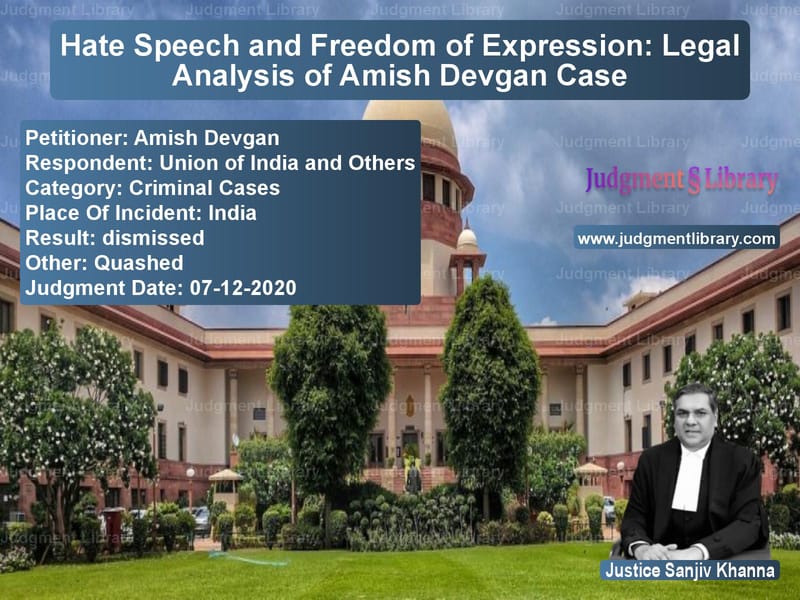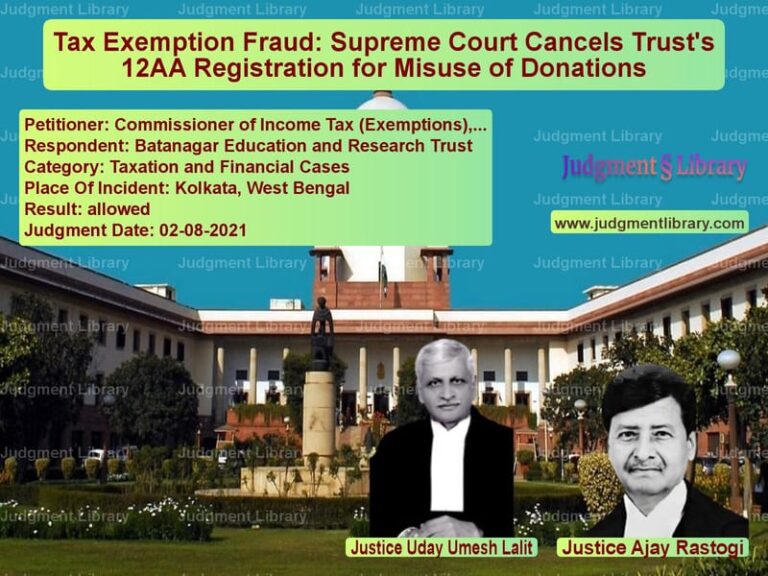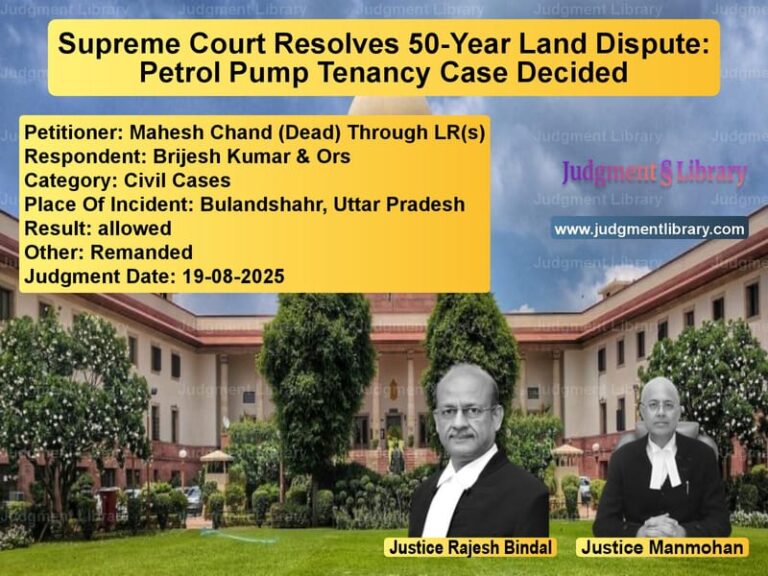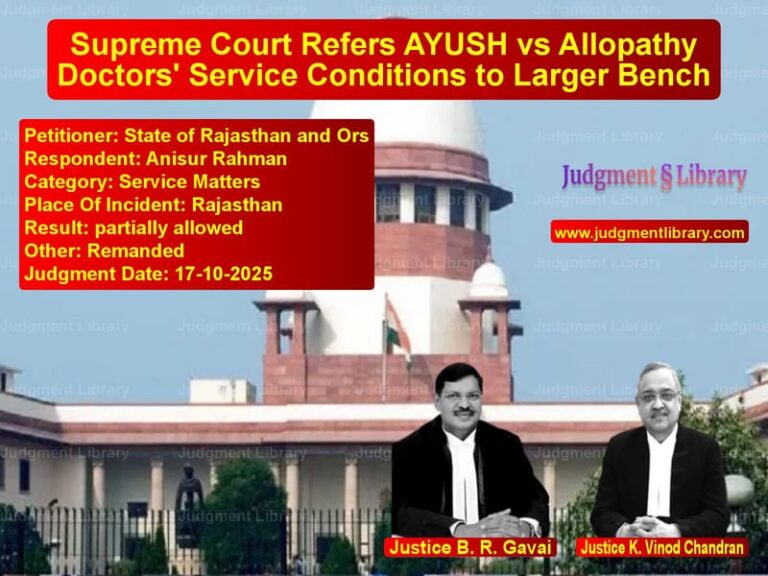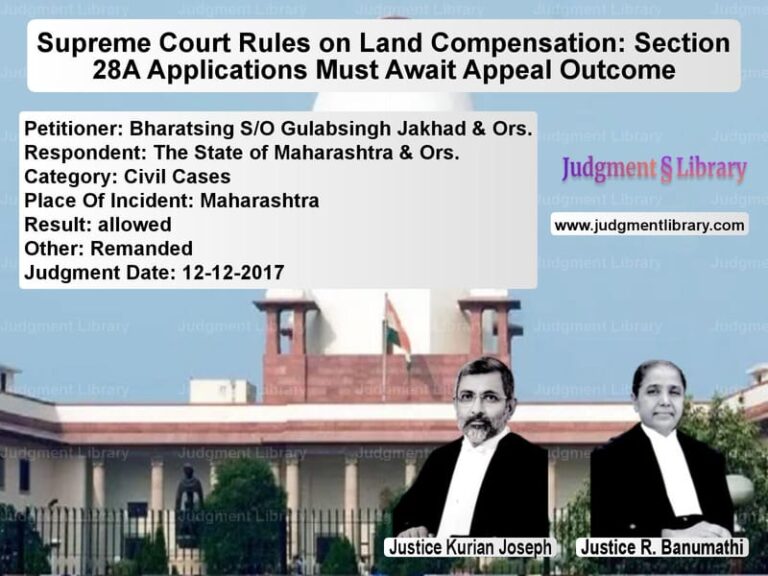Hate Speech and Freedom of Expression: Legal Analysis of Amish Devgan Case
The case of Amish Devgan vs. Union of India & Others was a significant legal battle concerning the fine line between freedom of expression and hate speech in India. The Supreme Court was called upon to decide whether multiple FIRs filed against journalist Amish Devgan, for his alleged derogatory remarks during a live news debate, should be quashed or if they constituted a legitimate exercise of legal provisions against hate speech.
On June 15, 2020, Amish Devgan, a journalist and managing director of multiple news channels, hosted a debate regarding religious conversions and the Places of Worship Act, 1991. During the live show, he allegedly made offensive remarks against a revered religious figure, leading to widespread outrage and the filing of multiple FIRs in different states under Sections 153B, 295A, 298 of the IPC and Section 66F of the Information Technology Act, 2000.
Background of the Case
- Amish Devgan made statements that were perceived as derogatory towards a religious figure.
- Following the broadcast, seven FIRs were lodged across different states, including Rajasthan, Telangana, Maharashtra, and Madhya Pradesh.
- Sections invoked in the FIRs included 295A (Deliberate and malicious acts intended to outrage religious feelings), 153B (Imputations, assertions prejudicial to national integration), and 298 (Uttering words with deliberate intent to wound religious feelings).
- Devgan filed a writ petition seeking the quashing of these FIRs, arguing that his statements were unintentional and that multiple FIRs violated his fundamental rights.
Petitioner’s Arguments
Amish Devgan’s counsel contended:
- The remarks made during the debate were unintentional, and he had later issued a public apology, clarifying that his intent was not to hurt religious sentiments.
- The multiple FIRs filed across different states amounted to harassment and violated the principles laid down in TT Antony vs. State of Kerala (2001), which prohibits multiple FIRs on the same offense.
- The statements did not incite violence or disrupt public order, and thus, they were protected under Article 19(1)(a) of the Indian Constitution.
- The invocation of Section 295A IPC was misplaced, as it requires a deliberate and malicious intention to insult religion, which was absent in this case.
- The multiple FIRs should be quashed to prevent forum shopping and avoid burdening the legal system with parallel proceedings.
Respondent’s Arguments
The Union of India and various state governments argued:
- Freedom of speech is subject to reasonable restrictions under Article 19(2), which includes restrictions on speech that incites hatred or disrupts public order.
- The statements made by the petitioner were deeply offensive to a particular religious community and had the potential to incite communal disharmony.
- Multiple FIRs were filed because the offense was committed against members of a community across different states, each of whom had the right to lodge a complaint.
- Section 295A applies because the remarks were not only offensive but were made in a public setting, reaching a large audience.
- The precedent set in TT Antony does not apply because each FIR pertained to different complaints by distinct individuals.
Supreme Court’s Observations
The Supreme Court, in its judgment delivered by Justice Sanjiv Khanna, analyzed the balance between freedom of expression and the need to curb hate speech.
1. Freedom of Speech vs. Hate Speech
The Court held:
“Freedom of speech is a fundamental right but is not absolute. It cannot be used as a tool to incite hatred or offend religious beliefs with impunity.”
The Court cited the precedent set in Pravasi Bhalai Sangathan vs. Union of India (2014), which held that speech inciting hatred can be regulated under reasonable restrictions.
2. Validity of Multiple FIRs
On the issue of multiple FIRs, the Court ruled:
- The multiple FIRs were valid since the impact of the speech was felt in different regions, giving affected individuals the right to file complaints.
- However, to prevent harassment, all FIRs were clubbed and transferred to a single jurisdiction.
3. Application of Section 295A
The Court held that Section 295A IPC was correctly invoked as the petitioner’s statements had the potential to incite communal discord.
“The offense under Section 295A is made out if the act is done with deliberate and malicious intent to insult religion. The statements, though later retracted, had the potential to harm public order.”
Final Judgment
- The petition to quash all FIRs was dismissed.
- However, all FIRs were directed to be consolidated in a single jurisdiction to avoid multiplicity of proceedings.
- The Court ruled that hate speech laws must be applied strictly to prevent communal disharmony.
Implications of the Judgment
This ruling has significant implications:
- Establishes that journalistic freedom is subject to reasonable restrictions and cannot be used as a defense for hate speech.
- Affirms the validity of multiple FIRs in cases where the offense affects individuals across different regions.
- Ensures that hate speech is strictly regulated to prevent communal disturbances.
- Sets a precedent that media professionals must exercise caution while discussing sensitive religious issues.
This judgment reinforces the principle that freedom of expression does not grant absolute immunity from legal action, particularly in cases where speech has the potential to incite communal discord.
Petitioner Name: Amish Devgan.Respondent Name: Union of India and Others.Judgment By: Justice Sanjiv Khanna.Place Of Incident: India.Judgment Date: 07-12-2020.
Don’t miss out on the full details! Download the complete judgment in PDF format below and gain valuable insights instantly!
Download Judgment: Amish Devgan vs Union of India and O Supreme Court of India Judgment Dated 07-12-2020.pdf
Direct Downlaod Judgment: Direct downlaod this Judgment
See all petitions in Criminal Defamation
See all petitions in Cyber Crimes
See all petitions in Legal Malpractice
See all petitions in Judgment by Sanjiv Khanna
See all petitions in dismissed
See all petitions in Quashed
See all petitions in supreme court of India judgments December 2020
See all petitions in 2020 judgments
See all posts in Criminal Cases Category
See all allowed petitions in Criminal Cases Category
See all Dismissed petitions in Criminal Cases Category
See all partially allowed petitions in Criminal Cases Category

